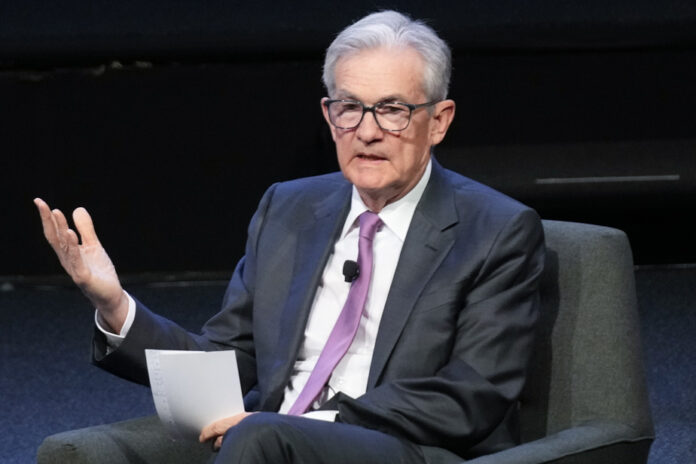(Washington) Inflation in the United States remains too high, the president of the American central bank (Fed), Jerome Powell, said on Thursday, emphasizing the need to move forward “cautiously” so as not to harm the economy. without, however, excluding raising rates further if necessary.
Jerome Powell also stressed that “geopolitical tensions are very high and pose significant risks to global economic activity.” In a rare personal statement, he said he “found the attack on Israel horrifying, as did the prospect of further loss of innocent lives.”
Jerome Powell’s speech at the Economic Club of New York was delayed after demonstrators from the Climate Defiance group burst onto the scene, who called for an end to financing fossil fuels, according to images broadcast by American media.
The Chairman of the Fed, in his speech, stressed that “inflation is still too high, and a few months of good figures are only the beginning of what it will take to be sure that inflation falls sustainably towards our goal” of 2.0%.
But, he warned, “the path may be strewn with pitfalls and take time.”
Inflation remained stable year-on-year in September in the United States, at 3.7% year-on-year, according to the CPI index published by the Labor Department, but slowed month-on-month for the first time since May , bringing a touch of optimism.
The PCE index, favored by the Fed, will be published on October 27, just before the institution’s next meeting, on October 31 and November 1.
Questioned afterwards, he clarified that in his opinion, “the evidence does not show that [monetary] policy today is too restrictive.” Which leaves the door open to additional rate hikes.
But he insisted, in his speech, on the fact that the Monetary Policy Committee (FOMC), the Fed’s decision-making body, “proceeds with caution” to sustainably curb inflation, without causing a recession.
To slow inflation, which reached its highest level in more than 40 years in June 2022, the Fed has raised its rates 11 times since March 2022. These are now in the range of 5.25- 5.50%, the highest since 2001.
Monetary policy is now “restrictive”, that is to say that it “exerts downward pressure on economic activity and inflation”, clarified Jerome Powell.
However, the effects of these actions take a long time to be visible in the economy, and this could continue to weigh, he said.















